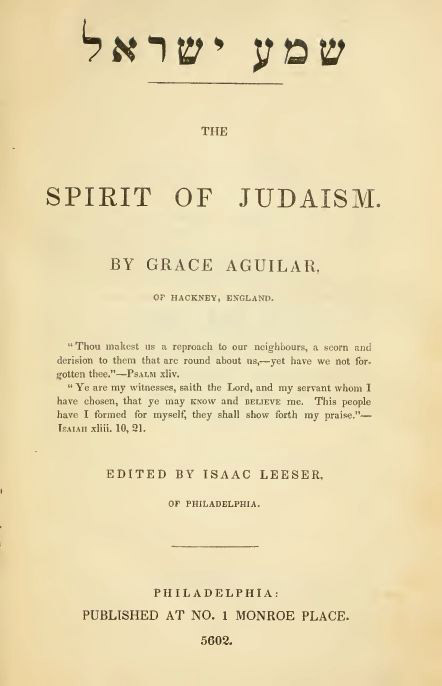What would it mean for Jews to read the Bible in the political and cultural contexts of secularism? Among the first to raise this question were the maskilim and their conservative opponents in the 1780s. The controversy over Mendelssohn's edition of the Pentateuch unfolded against the background of Protestant and Orientalist attempts to define the Bible as an "original" document that could be dissociated from the tangled exegetical web of "tradition" and studied as the core text of a religion that was compatible with reason and secularism.
More than half a century later, the question of how modern Jews should read the Bible was still relevant. It received a new twist, when Grace Aguilar, the first successful Anglo-Jewish woman writer, and Isaac Leeser, renowned rabbi, editor and Bible translator in Philadelphia, addressed it on the pages of Aguilar's The Spirit of Judaism (1842). Aguilar insisted on making the Bible universally accessible: it should be dissociated from the "obscurities" of tradition and disseminated among the entire "Hebrew nation," including, emphatically, women and the poor. Leeser responded to this project with considerable anxiety. He supported Aguilar's inclusive definition of the Hebrew nation, but identified the Christian subtexts of a universalist approach that was predicated on the rejection of "the trammels of tradition": "How else are we to read Scripture, unless it be in accordance with the views of our predecessors? What else forms the distinction between us and Christians?" (100). Perhaps one of Aguilar's answers to these questions can be found in her use of Hebrew letters whenever she discusses the Shma’ Yisra’el: in Jewish contexts, the religious, national and universal meanings of the Bible and its language converge, rendering the text unique and clearly distinct from Christian, secular and cultural Bibles.
